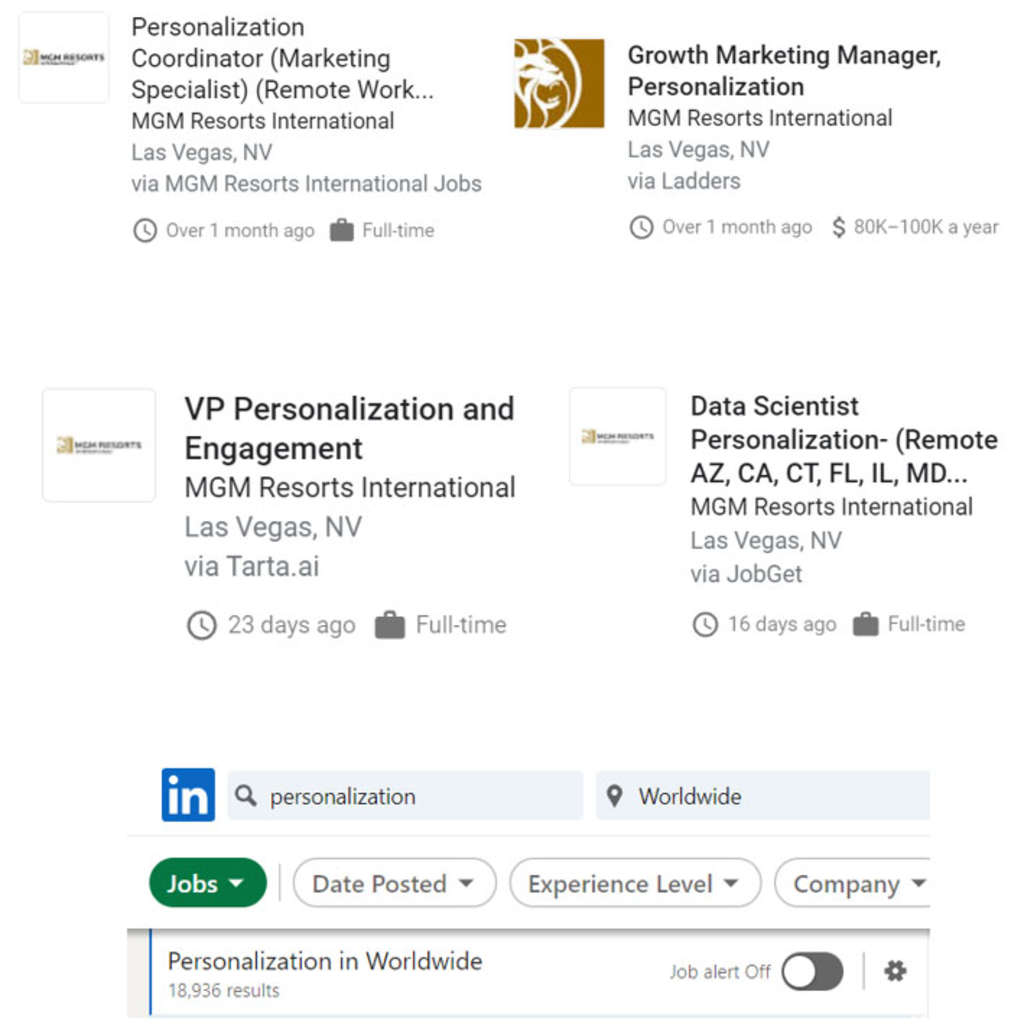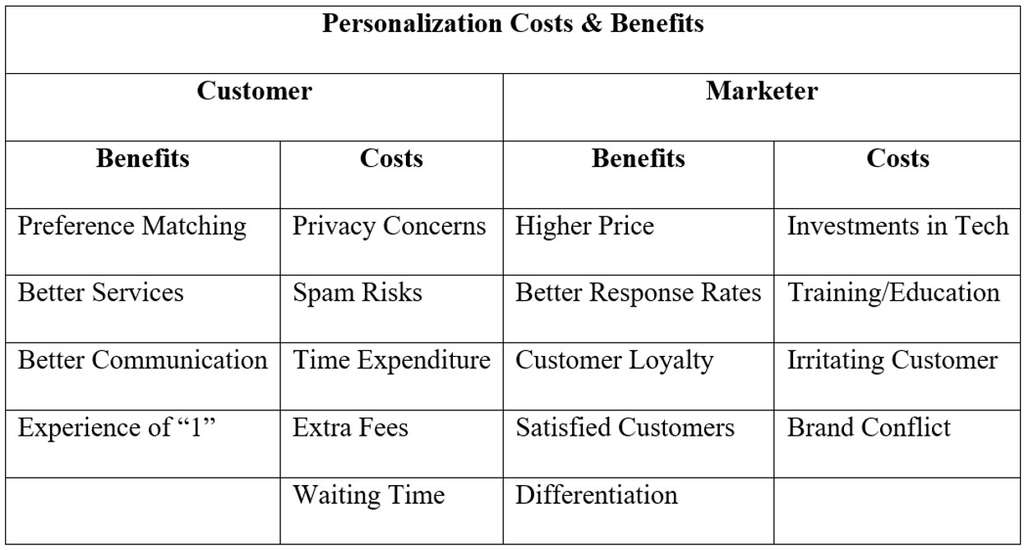Research Summary: Relationship Marketing through Personalization in Luxury Hotels - Differences between Millennials and Generation Xers?

As data is being generated at an exponential rate, it is imperative for professionals in virtually every industry to make use of this data to remain competitive. Relationship marketers can use this data to gain a better understanding of consumers on a more granular individual level as opposed to a less granular market-segment level. One area that hoteliers can reap tremendous benefits from data collection and leverage is through personalization. This element in relationship marketing is so crucial that MGM Resorts International has recently developed a team within marketing analytics dedicated to just personalization. Other businesses from other industries are also following suit, just type “personalization” in any job search engine (such as LinkedIn) and you will see the number of openings dedicated to this phenomenon. This highlights the value that it can add to businesses which is especially true for businesses that are part of the hospitality industry as personalization can help against negative trends happening in the industry such as increased hotel commoditization, market fragmentation, competition, and guest expectations.
In our research, we examined various relationship marketing elements and how they fare in the luxury hotel context when compared to differing Generational Cohorts. As most travelers are below the age of 60 - Millennials and Generation Xers were examined. The key constructs analyzed in this study is personalization with supporting constructs in the model such as financial, social, and structural bonds and how they relate to an individual’s loyalty to a luxury hotel.
Methods Used in Our Study:
Self-administered survey questionnaires were sent electronically to a Qualtrics Panel. Participants were asked to think of the last luxury hotel brand they stayed with and then asked to answer the questions developed in the survey questionnaire with this luxury hotel in mind. The sample consisted of U.S. residents aged 25-54 who have stayed at a luxury hotel property in the U.S. within the last 12 months. Questions regarding financial, social, structural, and personalization bonds were asked as well as demographic questions. A total of 205 survey responses were gathered and subgroup analysis through multiple regression was conducted to see the differences between Millennials and Generation Xers. Please note that this sample was collected in April 2020 - pretty close in time to the beginning of the COVID-19 pandemic.
Main results and implications of the study:
Different relationship marketing elements were found to be significant depending on whether the sample consisted of purely Millennials or Generation Xers. These differences were:
- Financial, structural and personalization bonds were found to be significant for Millennials and the combined sample as a whole.
- Only social and structural bonds were found to be significant for Generation Xers
Although different elements of relationship marketing were significant depending on the Generational Cohort, it is still imperative for hoteliers to try to encompass each element in their relationship marketing strategy. Therefore:
- Financial incentives should be given whenever possible, but may be less effective for older Generations. Although these bonds were found to be insignificant for Generation Xers, it may be due to this Generation being older and thus having more disposable income.
- Personalization should be leveraged but treaded carefully as it relies on the collection of guest data that may be highly personal for them. This relationship marketing element may have been insignificant for Generation Xers as older people generally have a higher concern for privacy which means they tend to be less comfortable sharing data. This can be mitigated by providing an ad campaign that is transparent by showcasing the major benefits of personalization while communicating the minimal cost to the guest.
- Hoteliers should invest in social bonds as the pandemic wanes. Social bonds being insignificant for Millennials was an interesting finding that we weren’t expecting as Millennials are known to be quite sociable due to being raised in the social media era. Our theory on why this element was insignificant for this cohort is due to the data being collected during COVID-19. As generational cohorts are shaped during their younger years, it makes sense that the social distancing would have affected Millennials more than Generation Xers.
- Hoteliers should incorporate brand-level benefits to increase switching costs to the guests through structural bonding. Structural bonds was the only construct significant for both Generational Cohorts which theoretically makes sense since structural bonds are considered the highest level of relationship marketing as it pertains to providing value to the guests to a point where switching to another brand will garner huge switching costs to the guests.
Concluding Remarks
Personalization has become a hot topic industry-wide due to the onset of big data collection and increased business-to-business competition. Although personalization is an important element to incorporate into the relationship marketing mix - it is important to incorporate other relationship marketing elements such as financial, social, and structural bonds. Marketing analysts can segment based on generational cohort to test how effective this method is in predicting the outcomes of certain key performance indicators.
Publication: Dennis Baloglu & Billy Bai (2021): Developing relational bonds with luxury hotel guests through personalization: A subgroup analysis of generational cohorts. International Journal of Hospitality & Tourism Administration. https://doi.org/10.1080/15256480.2021.1988880



